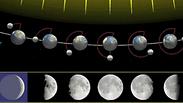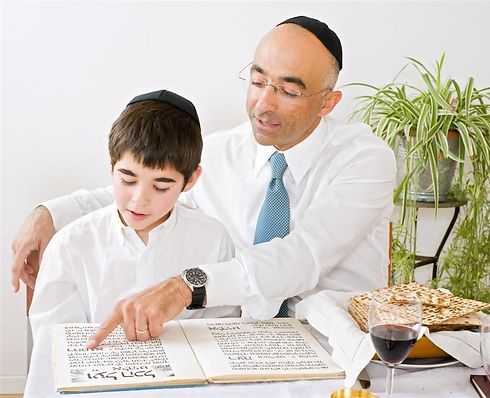
The Jewish calendar. Connects the solar and lunar systems
צילום: אורות
Will Passover take place in the summer?
The Jewish calendar may be filled with wisdom, but it does include some bugs which may make the entire holiday system move in several hundred years; scientists and researchers are working to solve the problem.
If you thought the Jewish calendar was an accurate model, think again. While it is filled with wisdom and connects the lunar and solar calendars, it does include some bugs. What kind of bugs? The kind which will make Passover - the festival of spring - take place in the summer in several hundred years.

"Passover is just one example," says Dr. Eran Raviv of Bar-Ilan University. "All the holidays will move. And because the holidays need to maintain both an agricultural system and the system of Hebrew months - the moment the entire holiday system moves compared to the solar year, there is a problem which must be considered, and it is keeping us busy theoretically."
According to Dr. Raviv, the problem is expected to start in the next 500 years. Prof. Eli Merzbach of Bar-Ilan University, on the other hand, is more optimistic, expecting the main problem to begin in about 10,000 years.
In any event, there is a problem, which has led to the introduction of a special seminary at the university, bringing together researchers from different fields to discuss the future of the Hebrew calendar.

So when will Jews celebrate Seder night a few hundred years from now? (Photo: Shutterstock) (צילום: shutterstock)
"Maimonides, in Hilchot Kiddush Hachodesh (the laws of the sanctification of the new moon)" tells us that the sons of Issachar were 'full of wisdom about the seasons,' but the books they wrote have been lost," Dr. Raviv tells Ynet and Orot TV. "And since then, Maimonides writes, Greek philosophers have written many books about them. In this sense, we are basically entering a slot which aims to reenact those books, whose center of knowledge belonged to the Jewish people. We are rebuilding it."
'Compared to all other calendars, ours is the best'
Prof. Merzbach explains that "there are many calendars in the world. There are lunar calendars which only consider the moon, like the Muslim calendar. There are solar calendars, which only consider the Earth's motion around the sun, like the civil Gregorian calendar. Our Jewish Calendar is very special - a lunar-solar calendar, which considers both the moon's motion around the Earth, and the Earth's motion around the sun."There are irregularities in the Jewish calendar, and these irregularities are occasionally balanced by adding a month. That's what we call a leap year. A month is added seven times in a 19-year cycle, but compared to all other calendars, our calendar is the best."
The Hebrew calendar, according to Prof. Merzbach, has existed for some 1,600 years. "In any event, there was a period when there was a dispute between the Land of Israel scholars and the Babylon scholars. It was about 1,200 years ago. The Jews marked Yom Kippur, Passover and Sukkot two days apart, until Rabbi Sa'adia Gaon arranged the calendar as we know it today."










